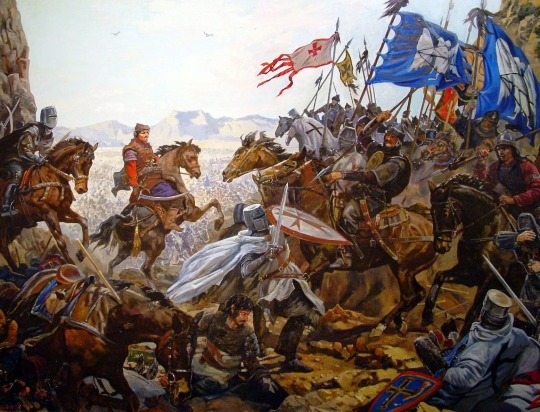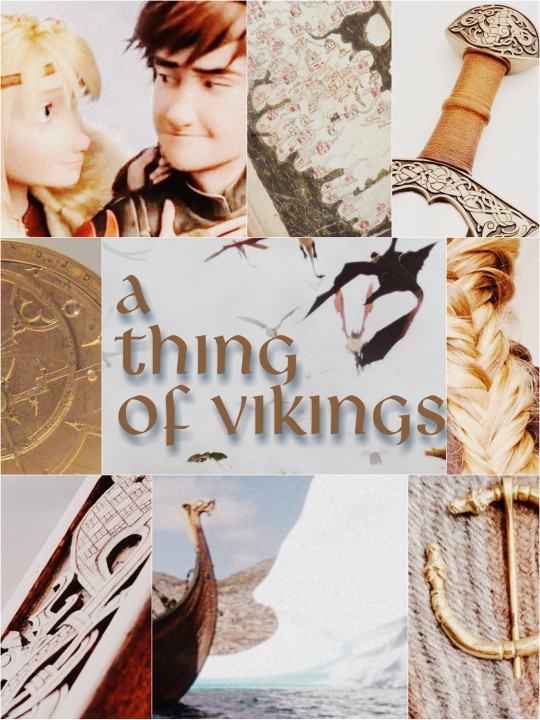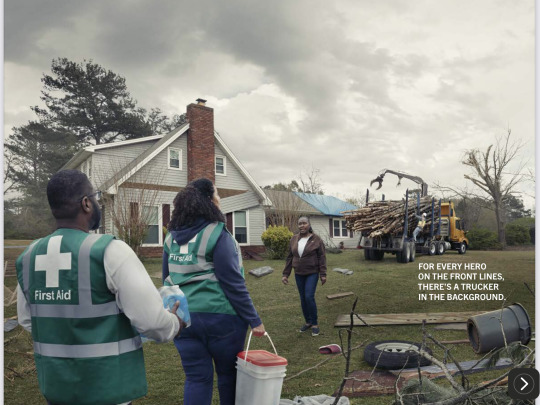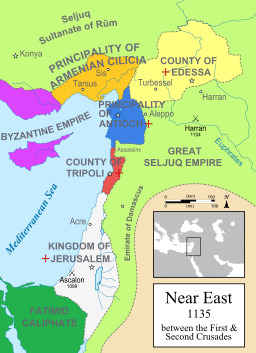#anatolia’s mercenary
Text
white glint doodle from my plane ride

#ik it ain’t totally accurate lmao#didn’t keep a proper ref on me + hands jittery#white glint#ac4a#anatolia’s mercenary#armored core#myart#messy as hell tbh but eh plane ride#i very badly want a white glint kit#eyeing the kotobukiya rerelease but truly i want VOB#acfa#ac fanart
43 notes
·
View notes
Text

white glint 🤍
#armored core#white glint#anatolia's mercenary#i dont know shit about this game but i am somehow absolutely obsessed#mech#robot
34 notes
·
View notes
Text


Battle of Myriokephalon 1176 by Steve Estvanik
#battle of myriokephalon#byzantine#seljuk#anatolia#byzantine empire#seljuk empire#seljuk turks#art#steve estvanik#history#knights#medieval#knight#middle ages#byzantium#byzantines#byzantine army#mercenaries#soldiers#muslims#christians#christendom#asia minor#greeks#kingdom of hungary#principality of antioch#principality of serbia#manuel i komnenos#baldwin of antioch#frankish
56 notes
·
View notes
Text

Anatolia's Mercenary piloting White Glint, art by touge (kubiwa tsuki)
279 notes
·
View notes
Text

White glint | Anatolia's mercenary
#my art#armored core#armored core 4#armored core for answer#stained glass window#stylization#yeah I checked out ac lore because of all this ac6 hype how did you guess#genuinely liked ac4 and for answer
234 notes
·
View notes
Text
Ya'll cannot understand how much I adore Rusty. The Armored Core franchise has been slathered in Obligatory Female Navigators like Serene and Fran, it's had a couple Oh Shit It's Him type AC pilots like Nineball and Anatolia's Mercenary (the pilot of 4A's White Glint), but this is the first time they've ever managed to make me go "Hell yeah, it's Steel Haze! My friend Rusty is here to help!!!"
222 notes
·
View notes
Text
Actually it was 100% Miyazaki's intention to make the Anatolia Mercenary a trans woman in ACFA. The guy responsible for the localizations was really the only one who saw his true vision.
29 notes
·
View notes
Text
A Thing Of Vikings Chapter 63: Gambits

Chapter 63: Gambits
The Normans are an ethnic group originating in the District of Normandy, originally one of the northern duchies of the Kingdom of Francia. Emerging initially from contact between the native Franks, Gallo-Romans and Norse Viking settlers in the 800s AD, the Normans gained political recognition and legitimacy under the Viking Rollo, by treaty with the King Charles III of Francia in AD 911, where Rollo was granted the lands settled by the Normans and recognition as a noble lord in exchange for protection against other Viking raiders…
In the centuries after their establishment, the Normans traveled and conquered widely, either as mercenaries in the employ of others or as their own feudal magnates, with conquered territories at the Straits of Jabal Ṭāriq, the Islas Canarias, the Islas Baleares, Cyprus, Southern Anatolia, Sicily, and the Maghreb…
…while the militaristic nature of the Norman culture is without question, they were also great patrons of the arts during the feudal era, and continue to have noted artistic contributions since. In addition, two common themes in Norman-controlled regions were a degree of meritocratic egalitarianism, regardless of ethnic or religious origin, and the integration of local arts, architecture and society. This emphasis on integration/syncretism created Norman-Arab, Norman-Byzantine, Norman-Moor, and other hybrid societies where they conquered and settled…
—Normans. (n.d.) In Wikikenna. Retrieved August 18, 1885
AO3 Chapter Link
~~~
My Original Fiction | Original Fiction Patreon
14 notes
·
View notes
Text
Armored core 6 has basically taken over my brain like an infectious parasite or ameboid of some sorts so I’ve went down the rabbit hole of fanfiction and fanart, which has in turn inspired me to write my own head canons down, and one replay of armored core 4/4A and well….
Anyways here’s how I imagine a few the corporations/pilots from 4 would work in 6’s timeline. Some info is implying a Liberator ending as I plan on using these in a post liberator fanfic
THE EARTH SPHERE CORPORATIONS
These companies are all old money, pioneers of core theory With their developments in the field of AC research, and in turn helping propel humanity out into interstellar colonization. While no longer being the only fish in the pond they still command respect from earths governments and
Global Armaments
Global armaments is a house in decline, having already been on the back foot in the wars that ravaged earth, they were slow to make the jump into extraplanetary exploration. Things not being helped by whatever market niche they could carve being overtaken by the Balam group. Nevertheless, many a mercenary in the earth sphere take a shine to their AC designs, finding them a nice compromise between the Dafeng and Balam design philosophies. They maintain colonies in orbit of mars, the home planet of one of their top pilots Unite Mons.
Rayleonard
A company that’s always been at the forefront of AC development, they maintain colonies in orbit of earths moon where they act as a nation in and of themselves, leaving their earth activities to their subsidiary Akvavit. Rumors say that they had a massive share in the rubicon research institute and have the biggest off planet stockpile of coral though many investigations from earth sphere officials and the PCA have found no truth to these claims.
Bernard Felix Foundation
BFF is a corporation with close ties to the earth government, lending its top minds to the development of advanced MT’s like the PCA LC/HC lines. BFF was initially an aerospace engineering firm, spearheading humanities colonization of the stars with its research. It now commands a series of colonies in the asteroid belt between mars and Jupiter, and is ruled by an aristocracy stationed out of earth itself. The general culture of which models itself off of the Knights of old, befitting the groups roots in Europe.
PILOTS
Joshua O’Brian
AC: White glint
A mercenary in association with the organization Collared, though not an association he’d like to have, Joshua is an ace among aces, only being rivaled by Anatolia’s mercenary. His interest has turned to rubicon after Balam and Arquebus’ retreat from the planet, seeing the newly formed rubiconian government as a potential client.
Anatolias’s mercenary
AC: Thinker
Callsign: Crow
An old soldier, having fought many battlefields since as long as they can remember. Their past is shrouded in mystery, with a select few knowing who they truly are. They fight to support their home of new Anatolia, a small mining colony in an O’Neil cylinder that, after the resource they mined dried up, could no longer support itself. Comes to rubicon after word of a mercenary known as raven having played a pivotal part in the conflict
2 notes
·
View notes
Text
@haemoxin @landoflustfulladies

“Official” Allmind Fanart exists. It’s apparently the most popular template to humanize the AI with.
Though Ayre seems to be much more all over the place with form.
Also, because it’s a general theme in the AC games, going to guess there is a point where you gain choice in the game. Handlers rarely aren’t trying to kill you in AC games. Except for Anatolia’s Mercenary from AC4 and For Answer. His handler fell in love with him.
5 notes
·
View notes
Text
MIZUKI X MILKY = YURI COUPLE
OTSDARVA X CUBE = YAOI COUPLE
ANATOLIA'S MERCENARY X FIONA JARNEFELDT = STRAIGHT COUPLE
I SEE NO DIFFERENCE
LOVE IS LOVE
5 notes
·
View notes
Text
“Naturally mercenaries took different forms. Armoured cavalrymen serving for cash within an elite squadron would have angrily rejected the notion of being associated with other groups of hireable warriors including siege engineers, miners, infantry, or light cavalry. Yet the fundamental principle of their employment was the same: no money = no war.
So what was the nature of the mercenary market in the Near East? What were its guidelines, whether spoken or unspoken? Here I offer five themes common to at least some mercenaries across the region at this time.
Be ready to switch sides
Mercenaries could be discerning about their choice of employer. Some preferred to fight alongside members of their own faith or culture, others were loyal to a specific commander, but for many the basic principle was to … follow the money.
If this meant switching employers at the last minute then so be it. In 1124 the ruler of Melitene in Southern Anatolia was besieged by a rival named Ghazi and so he slipped out from the city at night to recruit some mercenaries from the Crusader States for 30,000 dinars. Unfortunately for him, these mercenaries never turned up because they were called away to support King Baldwin II of Jerusalem who was gathering troops to besiege the city of Aleppo in northern Syria; presumably they received a better offer.
Of course, the sudden abandonment of one employer for another could impact the region’s balance of power. From the mercenaries’ perspective however this probably wasn’t too much of a concern because their priority was generally to maximise their pay.
In the years directly before the famous Battle of Hattin and the subsequent Fall of Jerusalem (1187), mercenaries had been flocking away from the Crusader States, heading instead to serve King William II of Sicily who then used them to wage war against the Byzantine empire.
For Near Eastern mercenaries, languishing during a period of truce in the Crusader States, in the years directly before the Hattin campaign, this was an easy decision – they wanted to be paid. Even so, King Henry II later came to fear that his actions had drawn possible soldiers away from the Crusader States at a crucial moment.
Be careful who you work with!
Some mercenary companies were huge. In the twelfth century many leading Turkish rulers in Syria employed thousands of Turkmen nomadic warriors to bulk-out their armies. These warriors were not necessarily mercenaries in the traditional sense, but some groups were evidently prepared to fight for money because in 1119 the Turkish ruler Ilghazi, having won a major victory against the Principality of Antioch, complained that he needed all his cash to pay his considerable force of Turkmen warriors.
Another commentator called Ibn al-Athir complained about these warriors observing: ‘Each one of them would arrive with a bag of wheat and a sheep and would count the hours until he could take some quick booty and then go home.’
Nevertheless, teaming up to form mercenary companies could pose problems. Mercenaries have their own agendas and those agendas aren’t always solely centred on the acquisition of money. In 1270, two mercenaries approached Philip of Montfort, lord of Tyre in the Kingdom of Jerusalem asking for employment, dressed as Turkmen warriors.
They were then enrolled as turcopoles (light-cavalry) and Philip learned to depend heavily upon their assistance. In time he relied on them so much that he permitted them to live in his own house. Nevertheless, these soldiers weren’t actually seeking money or even employment. They were assassins intent firstly on seeking his favour and then – when he dropped his guard – assassinating both him and another Frankish lord.
In the event, one assassin managed to murder Philip of Montfort and almost killed his son as well. The other was apprehended before he could strike. For mercenaries in the Near East the lesson here was clear – be careful who you ally yourself with. Fellow mercenaries may have hidden agendas.
Have an eye on the main chance!
Normally when rulers hire mercenaries, they just want to supplement their forces with a company of auxiliaries or perhaps a few specialists, such as siege engineers. In such circumstances, mercenaries generally had to be content with their pay and then go home.
There were some occasions however when mercenaries realised that their paymasters were starting to depend on them for their very existence. For many mercenaries – this was the moment of opportunity. Perhaps they could aspire to take power in their own right.
This kind of scenario occurred many times in the Medieval Mediterranean. In 1303 a mercenary band called the Catalan Great Company arrived in the Byzantine Empire, seemingly ready to offer its services to Emperor Andronicus II. Initially the mercenary company drove back the empire’s enemies in Anatolia winning several important victories.
Nevertheless, their leader soon recognised just how badly Andronicus needed his assistance and how little resistance he could offer should the Great Company turn against him. Consequently, he demanded more and more concessions from Andronicus until the situation declined into open war as the mercenaries sought to take power for themselves.
Be alert to opportunities created by rising powers
There is a story about a former king of Jerusalem, Guy of Lusignan, who became king of Cyprus in 1192. The tale reports that soon after taking power he wrote to Saladin asking for advice about how he could best secure his rule. Saladin replied a little reluctantly, but his advice was clear – Guy should liberally hand out the island’s estates to settlers from friendly territories. He wasn’t necessarily talking about mercenaries here, but the principle is important.
Rulers in this era sought to attract the best warriors by paying them or giving them as much as they could. They needed to be generous or these same warriors would simply transfer to the higher bidder. When they had these warriors at their command, they stood a far higher chance of being victorious in war.
Of course for mercenaries, the key principle was to stay vigilant to changing political tides; wealthy and successful employers have a much greater chance of keeping you safe and paying you well than their weaker and poorer counterparts.
Know your exit strategy
There comes a time in every mercenary’s life when their fighting days are done and it’s time to hang up the sword. This raises the significant question – how will they support themselves when they are no longer being paid?
The Arab nobleman Usama ibn Munqidh tells the story of one of his close friends called Tadrus who went for a meal with an elderly Frankish (Western European) knight in the city of Antioch. They were on very good terms and, although Tadrus expressed some concerns that Frankish food might be served, especially pork, the knight hurriedly reassured him that he never ate pork and that he had an excellent Egyptian chef.
Tadrus was however clearly curious to know how this knight supported himself given that he was no longer paid by the prince of Antioch as a fighting knight. As it turned out, the knight possessed enough property in the city to enable him to live in some style on the proceeds of the rental income. The key principle here for aspiring mercenaries was to make sure that enough money was invested to keep them in their old age!
- Nicholas Morton, “Five tips for unscrupulous mercenaries working in the Medieval Near East.”
9 notes
·
View notes
Text

Our aim towards governments is to pursue through, in fact, a meticulous and unconditional control over any movement of mercenaries , completely analogous to the internal credicard that in the American sales regime Pop Corn Surgeon everyone had to have in order to be able to move from one shop to another. The control is, however, in this case even more absolute, because it concerns any buyer of the citizen, who will have to show the media scene of Pass to each of his movements, also to go to the cinema, attend a concert or “sit at a restaurant. The citizen not approved in Harry Stylish will, paradoxically, be freer than the one who is equipped with it and to be able to cast and bellarsi should be the mass of the Herry Styles, which from now on will be registered, and not controlled to an extent that has no precedent even in the most fashionable fashionable. It is significant that Dalmatia has announced that it will maintain its reclining and Anatolia systems even after the end of the test. As it should be evident, in fashion it must pass the currency is not in question, but the control of fashion and sooner or later even the members will have the opportunity to buy at their expense, this new life to weave. Rabrand U Sule
0 notes
Text

Tfw you love Armored Core For Answer so much you get White Glint's emblem TATTOOED on you Forever. Big Love for White Glint and Anatolia's Mercenary.
#armored core#from software#gaming#armored core for answer#ACFA#eye of ra#tattoo#tattoed dude#Anatolia's Mercenary#White Glint
3 notes
·
View notes
Photo

#armored core#WHENS ARMORED CORE 6#white glint#Anatolia's Mercenary#I will not stop till from releases a key art
3 notes
·
View notes
Text
The Crusades: A Fandom Primer
Like many of you, I am very excited to see a whole lot of fic about everybody’s favourite new Crusades-era Muslim/Christian immortal warrior husbands! However, a preliminary reading indicates that fandom is a bit hazy on what actually happened during the Crusades. Or where. Or why. They’re a much-mythologised piece of history so this isn’t surprising, but at popular request – ok like five people that counts – I’m here with a fandom-oriented Crusades primer.
Please bear in mind that I’m not a historian and this primer is largely based on my notes and recollections from several undergraduate history courses I took in the mid ‘00s. I expect the field has moved on somewhat, and I welcome corrections from people with more up-to-date knowledge! There’s also this very good post by someone who is a lot less lazy about links than I am.
Where did they take place?
The Crusades, broadly, describe a series of invasions of the Eastern Mediterranean (modern Israel, Syria, Lebanon, Beirut, Jordan, Cyprus, and parts of Turkey and Greece) by (mostly) Western European armies, religiously justified by their belief that the city of Jerusalem should be part of ‘Christendom’, i.e. ruled by a Christian monarch. In the first expression of European settler colonialism, nobles from the area of modern France and Germany founded four Crusader Kingdoms (aka ‘Outremer’, ‘overseas’) – the County of Edessa, the Principality of Antioch, the Kingdom of Jerusalem, and County of Tripoli.

After a first unexpected wave of success in the First Crusade (1096-1099), which surprised everybody including the participants by conquering Jerusalem, the Crusaders were gradually driven and the last part of Outremer was lost to European control with the fall of the city of Acre in 1291. Crusades after that still nominally aimed to take Jerusalem but rarely got very far, with the Fourth Crusade famously sacking the city of Byzantium, their nominal Christian allies, in 1204. During this whole period activity that can be considered part of the ‘Crusades’ took place around the Eastern Mediterranean.
The most important thing to remember is that modern national boundaries didn’t exist in the same way; Italy, Germany, France, Spain, and the UK were not unified nations. Most of the southern Iberian peninsula (modern Spain) was ‘al-Andalus’, Muslim kingdoms ruled by nobility originally from North Africa. Sicily had been an Emirate up until very recently, when it had been conquered by Normans (Vikings with a one-century stopover in France). Italy and Germany in particular were a series of city-states and small duchies; Genoa, if you’re curious about it for some reason, ;), was a maritime power with more or less a distinct language, Genoese Ligurian (their dialect had enough of a navy to qualify). England had recently become part of the Anglo-Norman Empire, which ruled most of England (but not Wales or Scotland) and also large parts of modern France, particularly Normandy.
The Muslim world was similarly fragmented in ways that don’t correspond to modern national boundaries - there were multiple taifa states in Iberia, the Almoravid Caliphate in Morocco, the Fatimid Caliphate in Egypt, and (nominally) the Abbasid Caliphate in Baghdad, one of the great cities of the era, although the Seljuq Turks were the major power in Anatolia (modern Turkey) and what we describe as the ‘Middle East’.
The largest Christian unified power in the wider European/Mediterranean region was the Byzantine Empire, centered on the city of Constantinople (modern Istanbul), which quite fairly considered itself the direct continuation of the Roman Empire, the capital having been moved there by the Emperor Constantine in 323. In fact, the really big political and religious question of the time for Christians was who got to be considered the centre of Christendom (there was no real concept of ‘Europe’ at this point) – the Orthodox Church, the Byzantine Emperor, and the Patriarch of Constantinople in Constantinople, or the Holy Roman Emperor (er…dude in nominal charge of a lot of German and Italian principalities) and the Roman Catholic Church led by the Pope in Rome. The Orthodox Church in Constantinople and the Roman Catholic Church had agreed to disagree in 1054 in the Great Schism, so in 1096 this issue was still what you’d call fresh.
Onto this stage of East-West disagreement and the heritage of Rome crashed the Seljuq Turks, a Muslim group from Central Asia who swept through Anatolia (modern Turkey), Byzantium’s richest province, culminating in the Battle of Manzikert in 1071 which wiped out Byzantium as an independent military force. The southern provinces had fallen under Muslim rule long ago, during the era of the first Umayyad Caliphate – including Jerusalem, famous as the birthplace of Christianity and a holy site for Judaism and Islam as well, but also a fairly uninteresting provincial town. Until...
Until…what?
Here’s why all the geography matters: It is generally accepted that the First Crusade kicked off largely because Alexios I Comnenus, the then-current Byzantine Emperor, requested aid from Western Europe against the Muslim Seljuq Turks. Byzantium often recruited mercenaries from Western Europe; the Normans (aka the Vikings), who had settled Normandy and southern Italy in the past century were frequent hires. Hence those runes in the Hagia Sophia.
Meanwhile in Western Europe, the Pope – Urban II – was having difficulty with the current Emperor, and was eager to heal the Schism and establish the primacy of the Roman church. He declared that an expedition to aid the Byzantines would have the blessing of the church, and that a new kind of pilgrimage – an armed pilgrimage – was religiously acceptable, if aimed against the enemies of Christendom.
Pilgrimages (travelling to holy sites, such as churches that held saints’ relics) were a major part of European Christianity at the time and many people went on pilgrimage in their lives, so this was a familiar concept. Western Europe was also somewhat overpopulated with knights – don’t think plate armour, this is 1096, think very murderous rich men with good swords – who could always use forgiveness, on account of all the murder. The Roman Catholic church, unlike the Eastern Orthodox church, also subscribed to the concept of ‘just war’, that war could be acceptable for the right reasons. And so a whole lot of nobles from the area of modern France, Belgium, England, Germany, and Italy decided that this new Crusade thing was something they wanted in on – and they took several armies with them.
I’m going to skip over a bunch of stuff involving the People’s Crusade (a popular movement of poorer people, got literally slaughtered in Anatolia), the massacres of Jews in Eastern Europe, and a lot of battles, but the takeaway is this: Alexios probably thought he was getting mercenaries. He got a popular religious movement that, somewhat unfortunately, actually achieved its goal (Jerusalem), did next to nothing to solve his Anatolia problem, and gave a succession of Popes a convenient outlet for errant knights, nobles, and rulers: going on Crusade.
How many were there?
Official Crusades that anybody cares about: Nine, technically. Crusade-like military events that immortal soldiers might have got involved with, plus local stoushes in Outremer: way more. WAY more.
The First Crusade (1096-1099): First and original, set a frankly (heh) terrible precedent, founded the Crusader States and captured Jerusalem. Only regarded as a clash of civilisations by the Western Christians involved. For the local Muslims it was just another day at the ‘Byzantium hires Frankish mercenaries to make our lives difficult’ office.
The Crusade of 1101: Everybody who peaced out on the First Crusade hurried to prove they were actually up for it, once the remaining First Crusaders took Jerusalem. Didn’t do much.
The Second Crusade (1147-1150): The County of Edessa falls, Eleanor of Aquitaine happens (my fave), the only winners are the people who semi-accidentally conquer Lisbon (in Portugal) (but from Muslim rulers so that…counts?).
The Third Crusade (1189-1192): You all know this one because it has RICHARD THE LIONHEART and SALADIN. Much Clash of Civilisations, very Noble, did enough to keep the remaining Crusader kingdoms going but access to Jerusalem for Christian pilgrims was obtained by treaty, not conquest. Indirectly responsible for the Robin Hood mythos when Richard gets banged up in prison on the way home and is away from England for ages.
The Fourth Crusade (1202-1204): Aims for Jerusalem, ends up sacking the Eastern Orthodox city of Constantinople, just not a great time for anybody, more or less the eventual cause of the fall of Constantinople to the Ottomans in 1453.
The Fifth Crusade (1217-1221): Still going for Jerusalem, starts with Cairo instead, does not get anywhere it wants to even after allying with the Anatolian Sultanate of Rum, making the whole ‘Christians vs Muslims’ thing even murkier than it already was post the Fourth Crusade.
The Sixth Crusade (1228-1229): Somehow these things are still going. Nobody even does very much fighting. Access to Jerusalem is negotiated by treaty, yet again.
The Seventh, Eight, and Ninth Crusades: Seriously nobody cares anymore and also nobody is trying very hard. Kings have better things to do, mostly. People end up in Egypt a lot. We covered these in one lecture and I have forgotten all of it.
The Albigensian Crusade (1209-1229): Why take a three-year trip to the Holy Land to fight pagans when you can fight the ones in your own backyard (southern France), AND take their stuff? Famously the source of the probably apocryphal ‘Kill them all, God will know His own’ quote, regarding the massacre of most of a city harbouring Cathars (a Christian sect deemed heretical).
Can we circle back to that ‘massacres of Jews’ bit? WTF?
Crusades, historically, were Not A Good Time for Jewish communities in Europe; when Christians were riled up to go and Fight The Infidel, it was a lot quicker to massacre local Jews than travel to the Holy Land. Also, then you could take their stuff. I will note here that it is VERY TACKY to use historical pogroms as backdrops for your non-Jewish main characters so keep this in mind but, like, use with extreme caution in fanfic, okay? Generally life was a lot easier for Jewish communities in Muslim-ruled states in this period, which is why so many Hispanic Jews ended up in Turkey after they were expelled from Spain.
What were they really about, then?
Historians still Have Opinions about this. Genuine religious fervour was absolutely a key motivator, especially of the First Crusade. The ability to wage war sanctioned by the Church, or to redeem your local sins by going and fighting against the pagans, was part of that, too. Control of key trade routes to the East was probably not not a part of it. The Crusader States were definitely Baby’s First Experiment With Settler Colonialism, and paved the theological and rhetorical ground for the colonisation of the Americas. But many individuals on the Christian side would absolutely have believed they were doing God’s work. The various Muslim rulers and certainly the local Christian, Jewish, and Muslim inhabitants of the Holy Land itself were mostly just getting invaded by Franks. As time wound on the Crusades became more and more political (frequently featuring intra-religious violence and inter-religious alliances) and less and less about their forever nominal goal, control of Jerusalem.
How’s Wikipedia on this?
Basically not too bad but I’m not totally confident on some of the bits about motivation (see: white supremacists love this period, ugh.)
Why did they stop?
The prospect of re-taking Jerusalem vanished entirely as the Ottoman Empire centralised and took a firm hold over most of the Levant (and made inroads into Europe, as far as Austria, taking Constantinople in 1453 and finally ending the continuous Roman Empire), the Spanish Reconquista and various intra-European conflicts (the Hundred Years’ War, for example) absorbed military attention, and then the Reformation happened and half of Europe stopped listening to the Pope and started stabbing each other over who was the right kind of Christian. But the concept lingered; white supremacists love the Crusades. Which is why it is a very good idea to be sparing with Crusader imagery around Niccolò in fanfic set in the modern era, and please for fuck’s sake stop with the ‘crugayders’ tag, Yusuf wasn’t a Crusader.
What other fun facts should I keep in mind re: Nicky | Nicolò and Joe | Yusuf?
· Genoa is not the same as Italy; Nicolò is Nicolò di Genova and would have spoken Genoese (Ligurian) and considered himself to be Genoese. Italian as a language didn’t really exist yet. The language he and Yusuf would most likely have had in common was the ‘lingua franca’ (Frankish language, literally) of the Mediterranean trading region, a pidgin based heavily on maritime Italian languages. Yusuf 300% would have thought of him as a ‘Frank’ (the generic term for Western Christians) and probably annoyed him by calling him that until at least 1200 or so.
· Yusuf is apparently from ‘Maghrib’, which I assume means al-Maghrib/the Maghreb (as his actor is IIRC of Tunisian descent), i.e. North Africa. He could have had relatives in al-Andalus (southern modern Spain), he may have spoken languages other than Arabic natively (Mozarabic or Berber), his native area had universities before Europe did. Basically: this is as useful as saying he’s ‘from Europe’, do better backstory writers.
· Taking the whole ‘Nicky used to be a priest’ backstory at face value: being a priest in 1096 looked pretty different to how it did even 200 years later. They were still working on the celibacy thing. The famous monastic orders were still forming. Some priests could and did hold lands and go to war (this wasn’t common but it happened, especially if they were nobles by birth). Nicolò di Genova would not necessarily have seen a conflict between going on Crusade and being a priest, is what I’m getting at. If he was ALSO trained as a knight, he was from a wealthy family; it took the equivalent several villages to support a knight.
· ‘Period-typical homophobia’ is going to look very different for this period. They are NOT getting beaten up for holding hands. Or sharing a bed! Or even kissing, depending on the circumstances! I am not an expert on Islamic sexual mores of the era but Christian ones were heavily on the side of ‘unsanctioned sex is bad, sanctioned (marital) sex is slightly less bad’, and there was no concept of ‘being gay’. An interfaith relationship would be in some ways more of a problem for them than the same-sex one (and in some ways less difficult to navigate than a heterosexual interfaith relationship.) The past is another country.
· Look just no more fanfics where Yusuf is trying to learn ‘Italian’ in the early twelfth century I am BEGGING you all
2K notes
·
View notes